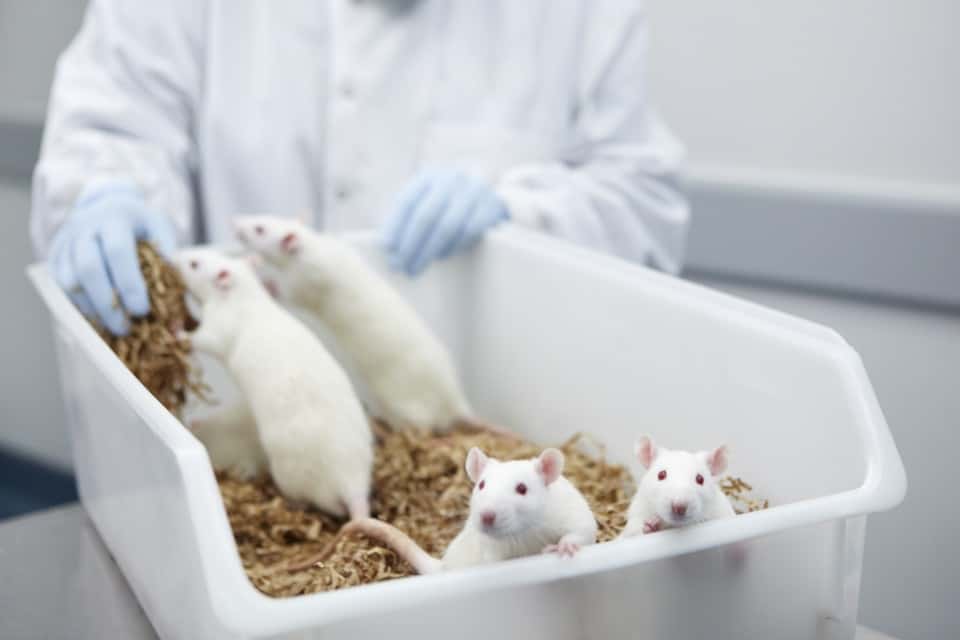[dropcap]A[/dropcap] Halifax local tweeted a photo of 372 cans of cat food slated for delivery to Dalhousie University, sparking national curiosity over the necessity of such a strange order. Once it came to light that Dalhousie needed the food to provide sustenance for the cats being used as live subjects for a research project on amblyopia (lazy eye) — the most common eye condition among children in North America. Public outrage ensued. In fact, animal rights activists held a protest just last week in opposition to the testing.
The University of Toronto, like Dalhousie, uses animals as teaching tools, for research, and in testing; for example, students enrolled in courses offered by the Department of Cell and Systems Biology are often expected to handle, observe, or experiment on animals. As such, this event raises important questions regarding the use of animals in research, particularly in universities and for scientific research.
While these animal right activists are arguably working for a noble cause, we need to be careful about categorically condemning animal testing. U of T, like many other universities, adheres to several protocols, committee reviews, and legal acts in order to protect and ensure the ethical treatment of animals used in teaching or research.
Specifically, we are guided by the three Rs — Replacement, Reduction, and Refinement. Replacement refers to using an alternative method of testing if available; reduction refers to using as few animals as possible; and refinement indicates the desire to constantly look for ways of changing methodology in order to minimize animals’ suffering. These principles are widely accepted as the foundation for ethical animal use policies around the world, because it ensures that animal testing is used only as a necessity, and executed in a way to lessen harm to the lowest degree possible.
U of T also requires researchers to complete a course on animal care, as animals must be kept in good health in order for research performed to yield accurate results. So, even if you do not believe in the researcher’s moral motivation to treat animals properly, you can at least have confidence they will be ensuring good health in order to cultivate accurate results.
When expressing opposition towards animal testing in universities, many also tend to overlook the incredible benefits that both humans and animals derive from this practice.
Animal testing has allowed us to establish the vast majority of major modern medical procedures, treatment, and technology of the past century. For instance, testing on monkeys led to the development of the polio vaccination, a disease that is now about to be eradicated. Organ transplants were perfected on dogs, sheep, cows, and pigs, extending the lives of millions of people. Dogs were used in research on diabetes, and this led to the discovery of insulin.
Because of such animal testing, many diagnoses are no longer death sentences. As we create ways to increase the average lifespan, new diseases are being discovered or developing in unprecedented ways. Continued animal testing is necessary in order to find treatments for these new diseases, unless, and until, technological developments become sophisticated enough to replicate experimentation on animals.
Therapies developed for humans can also be applied to treat the same diseases in animals, such as diabetes, cancer, and arthritis. In fact, testing on animals has led to many lifesaving treatments for farm animals, wildlife, and endangered species. Vaccinations for animals, such as rabies, tetanus, and feline leukemia, allow animals to live longer in good health. What’s more, endangered species benefit from advanced reproductive techniques — for example, giant panda population growth is facilitated by these techniques.
Animal rights protests should not be directed towards credible teaching and research institutions like U of T or Dalhousie. These institutions abide by ethical guidelines established to protect lab animals, which is radically different than the lack of ethical guidelines surrounding the use of animals in the food or fashion industry. When animal suffering is minimized, and there are potential and historically proven long-term human health benefits derived from testing, we should recognize the acceptability of animal testing.


